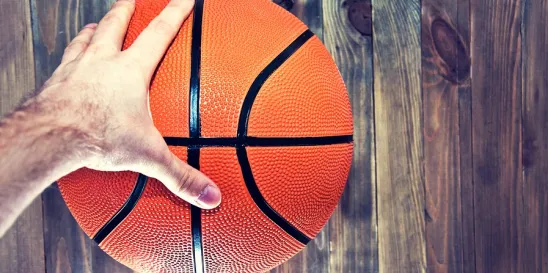On March 5, 2024, players on the Dartmouth College men’s basketball team voted to unionize, making the group the first college sports team to do so in the United States. Dartmouth College has already filed an appeal with the National Labor Relations Board (NLRB), setting up a legal challenge that will have significant implications for the status of college athletes and the future of college sports in the United States.
Quick Hits
- The Dartmouth men’s basketball team voted to unionize in what would be the first union to represent college athletes.
- Dartmouth has filed an appeal with the NLRB that could determine whether college athletes are employees within the meaning of the NLRA.
- The union vote could have significant implications for the future of college sports in the United States.
In a representation election overseen by the NLRB, the Dartmouth men’s basketball players reportedly voted 13-2 to be represented by the Service Employees International Union Local 560. The Trustees of Dartmouth College immediately filed a request for a review of the regional director’s decision and direction of election that had allowed the unprecedented election to proceed despite serious implications for college sports.
The election comes after an NLRB regional director in Boston, Massachusetts, ruled on February 5, 2024, that the men’s basketball players at Dartmouth—who compete in the National Collegiate Athletic Association (NCAA) Division I, the highest level of college athletics—are “employees” within the meaning of the National Labor Relations Act (NLRA) and have the right to a union election.
Dartmouth argued in its request for review that the players cannot be considered employees under the NLRA because they are amateur students who are provided with financial aid and academic resources, not compensation, and do not provide any service to the school.
Dartmouth, which is a private institution in New Hampshire and part of the all-private Ivy League collegiate athletic conference, called the regional director’s decision an “unprecedented, unwarranted, and unsupported departure” from applicable legal standards that creates a “new definition of ‘employee’” and “promises to have significant negative labor and public policy implications.”
College Athletes’ Employment Status
NLRB Region 1 Director Laura Sacks found that the Dartmouth men’s basketball players were employees in large part because the school “exercises significant control” over their participation on the team, including determining when players practice and play, review film, engage with alumni, and take part in other team-related activities. During travel, the school controls when and where the players travel, eat, and sleep, the regional director found.
Further, the regional director found that despite questions about the revenue generated, the players generate publicity for the school, and do so to receive various economic benefits, including equipment and apparel, tickets to games, lodging, meals, and other specialized academic and career development support.
The Dartmouth appeal tees up for the NLRB the issue of whether college athletes at private schools are employees after the NLRB punted on a similar issue in a 2015 case involving college football players at Northwestern University that left open the issue of whether college athletes at private universities may be considered employees under the NLRA.
In the Northwestern case, the full Board later declined to assert jurisdiction over the case, finding it “would not serve to promote stability in labor relations,” largely because the majority of schools that compete in college football at the highest level are public institutions not subject to the NLRA.
The regional director in Dartmouth reached her conclusion despite the significant differences in the economics of college basketball and football that distinguished the Dartmouth case from the Northwestern case, where the players received athletic scholarships in a sport—football—that generated more revenue. Further, unlike the highest level of college football, which is comprised mostly of public universities, Dartmouth is a member of a collegiate athletic conference made up entirely of private universities that do not provide athletic scholarships.
Looking Ahead
If the Board agrees that the Dartmouth basketball players are employees and allows the union election to stand, it could have a ripple effect, with college athletes at private universities across the country seeking to organize.
Yet the Dartmouth basketball players’ unionization vote is only the latest in a string of legal developments related to whether college athletes may be considered employees or parties entitled to receive compensation under various legal standards, including under the NLRA and Fair Labor Standards Act (FLSA). On February 23, 2023, the U.S. District Court for the Eastern District of Tennessee issued a preliminary injunction blocking the NCAA from enforcing new rules on athletes’ compensation derived from name, image, and likeness (NIL) rights—specifically, rules restricting the ability of so-called school “boosters” to negotiate with NCAA athletes during the recruiting and transfer processes.






 />i
/>i

